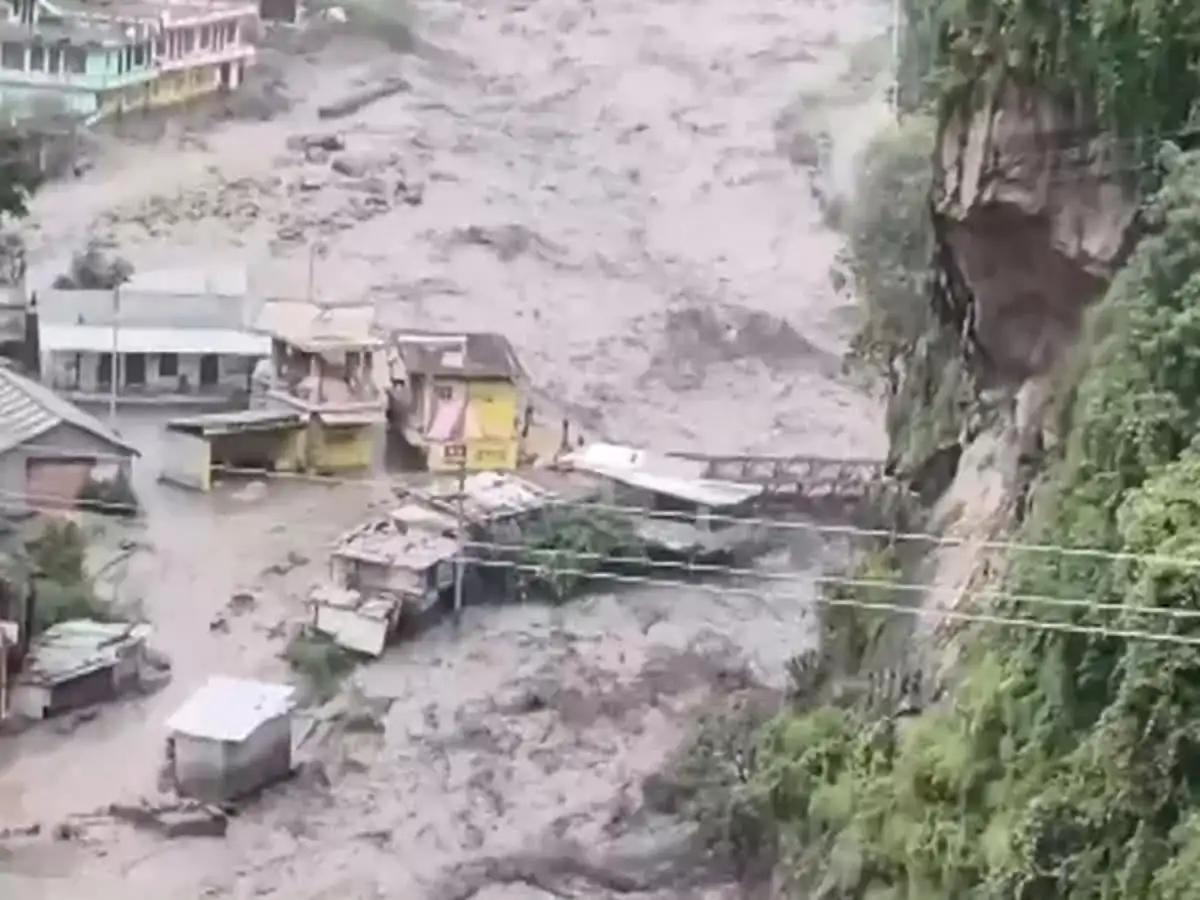 Image Source: Economic Times
Image Source: Economic Times
The ongoing intense monsoon rains in Himachal Pradesh have wreaked havoc, compelling authorities to close a staggering 484 roads—including two vital national highways—and impose a yellow weather alert until August 30, 2025. The relentless downpour has disrupted normal life, damaged infrastructure, and led to tragic loss of life, marking one of the most severe monsoon seasons in recent memory for the hill state.
Key Highlights: Widespread Infrastructure Disruptions and Road Closures
Due to incessant moderate to heavy rainfall, the State Emergency Operation Centre reported vehicular movement is barred on 484 roads across multiple districts, with Mandi leading at 245 closures and Kullu reporting 102 shutdowns.
National Highway 154A (Chamba–Pathankot) and NH 305 (Aut–Sainj) remain closed owing to landslides, debris, and waterlogging.
Several key district and regional roads turned into impassable drains, causing prolonged traffic blockades and stranding residents and travelers.
Floodwaters overflowed local drainage in Nagabari village (Nurpur Assembly) flooding homes and triggering public outcry over poor planning and highway drainage systems.
Human and Material Toll
Since the monsoon's start on June 20, around 298 people have lost their lives in rain-related accidents such as landslides, flash floods, and house collapses, alongside 146 fatalities from road mishaps exacerbated by wet conditions.
Power infrastructure suffered greatly, with 941 distribution transformers (DTRs) damaged, including 477 in Mandi and 409 in Chamba.
Water supply schemes have been disrupted across districts—51 in total—affecting daily life and prompting emergency resource management.
The state has incurred estimated losses surpassing ₹2,347 crore due to monsoon-induced damages.
Meteorological Outlook and Safety Advisories
The Himachal Pradesh Meteorological Department has issued a “yellow” alert for heavy rainfall in isolated parts of two to seven districts, urging caution until August 30.
Measured rainfall records show Pandoh in Mandi receiving the highest daily precipitation (123mm), followed by Kasauli (105mm), Jot (104.6mm), Mandi (68mm), and several other regions experiencing heavy bouts.
Thunderstorms and gusty conditions are expected across multiple zones including Shimla, Kangra, Bhuntar, and others.
Citizens are advised against unnecessary travel, especially in vulnerable hilly terrain prone to landslides.
Districts Most Affected
Besides Mandi and Kullu, districts like Chamba, Kangra, Una, Shimla, Sirmaur, Kinnaur, Lahaul and Spiti, and Bilaspur have reported numerous road and infrastructure disruptions.
Mandi faces critical damage with severe power failures (70 transformers out), water shortages, and over 200 road closures disrupting communications and transport.
Kullu and Chamba also report extensive infrastructure impact, with multiple roads and public utilities crippled.
Government Response and Disaster Management
The State Disaster Management Authority and National Disaster Response Force (NDRF) are actively engaged in rescue, relief, and restoration operations.
Authorities continue to monitor weather developments, deploying emergency services to critical areas.
Public health advisories warning of waterborne diseases and accident risks are being circulated.
Officials have promised to expedite restoration of power and water supplies and improve drainage planning to mitigate recurrent flooding.
Conclusion
Himachal Pradesh is grappling with severe monsoon-induced disruptions as torrential rains close hundreds of roads, dislocate communities, and cause tragic loss of life. The continuing yellow alert till August 30 underscores the need for heightened vigilance, prudent safety measures, and swift government action to restore normalcy and protect residents. This season’s harsh realities remind all stakeholders of the challenges posed by climate volatility in mountainous regions and the imperative to enhance infrastructure resilience.
Sources: Hindustan Times, Times of India, State Emergency Operation Centre
Advertisement
Advertisement






